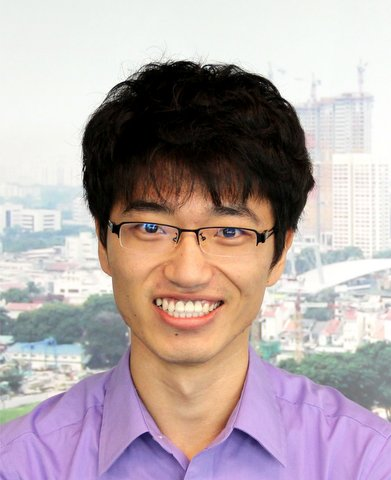
报告题目:Bayesian temporal factorization models
特邀嘉宾:孙立君 加拿大麦吉尔大学助理教授
时间地点:2019年7月12日,14:00-15:30,安中大楼A326
主持人:陈喜群 浙江大学智能交通研究所研究员
报告内容:时空移动/交通数据记录了来自不同地点(传感器/区域网络)和时间的旅行活动/交通状态(如流量和速度)观测,是广泛智能交通系统(ITS)和城市规划的重要输入,如出行需求预测、出行规划、行程时间估算、路线规划、共享出行、公交调度、信号控制、应急管理等。这些应用是未来智能交通的关键组成部分,对旅行者和运输机构都有利。时空移动/交通数据建模的基础是描述数据中的高阶相关性/相关性,并执行高效可靠的插补/预测。然而,尽管建模技术十分丰富,但新出现的问题不断挑战现有的建模框架,如小规模问题、线性系统以及平稳、均匀和完全观测的数据。因此,在现实的在线应用中,这些方法经常会遇到许多实际问题,如可扩展性有限、捕获多分辨率(短距离和长距离)依赖性失败、丢失/非平稳数据问题、传感器数量有限以及数据异源,同质性。在这项研究中,我们开发了贝叶斯时间矩阵和张量因式分解(BTMF和BTF)模型,用于缺失数据的输入和交通预测。与传统的贝叶斯矩阵或张量分解模型相比,BTMF和BTF考虑了时间序列序列时隙之间的时间依赖性,BTF是多维数据的高阶扩展。这两个模型都是完全贝叶斯的,能够从稀疏数据中学习并估计未知数据(即过去的缺失数据和未来的未知数据)
嘉宾简介: 孙立君博士,加拿大麦吉尔大学土木工程与应用力学系助理教授。2015年获新加坡国立大学土木工程(交通)博士学位,2011年获清华大学土木工程学士学位,曾先后在新加坡ETH中心未来城市实验室的移动和交通规划部门,麻省理工学院媒体实验室学习和工作。他目前的研究集中于城市计算和智能交通领域,开发创新的方法和应用来解决城市交通系统中的效率、弹性和可持续性问题。尤其是,他致力于将移动传感和机器学习的进展整合到人类出行建模、基于代理的仿真和智能交通系统中,以探索大数据、人工智能和网络系统对城市生活的益处和帮助,建设智慧城市。他的研究成果发表在交通和跨学科期刊上,如“Transportation Research” 和 “Proceedings of the National Academy of Sciences (PNAS)”。他的成果已经在媒体上做了专题报道,包括Wired、Citylab、Scientific American和MIT Technology Review。他是Transportation Research Part C: Emerging Technologies的客座编辑,加拿大魁北克Cirrelt的成员,并被任命为2019年第二届Chan Wui&Yunyin新星研讨会的成员。
Abstract: Spatiotemporal mobility/traffic data, which registers timestamped travel activity/traffic state (e.g., flow and speed) observations from different locations (a network of sensors/zones), is an essential input to a wide range of intelligent transportation systems (ITS) and urban planning applications, such as travel demand prediction, trip planning, travel time estimation, route planning, ride sharing, transit service scheduling, signal control, and disruption management. These applications are critical components of smart transportation of the future, benefiting both travelers and transport agencies. The fundamental of modeling spatiotemporal mobility/traffic data is to characterize the higher-order correlations/dependencies within the data and perform efficient and reliable imputation/prediction for decision making. However, despite the abundance of modeling techniques, emerging issues are constantly challenging existing modeling frameworks, such as small-scale problem, linear system, and stationary, homogeneous and fully-observed data. As a result, in real-world online applications, these methods often suffer from many practical issues, such as limited scalability, failure in capturing multiresolution (short-range and long-range) dependencies, missing/non-stationary data problems, the limited number of sensors, and data heterogeneity. In this study, we develop Bayesian temporal matrix and tensor factorization (BTMF and BTTF) models for both missing data imputation and traffic forecasting. Comparing to the traditional Bayesian matrix or tensor factorization models, BTMF and BTTF take into account temporal dependencies among time slots of time series sequence, and BTTF is a higher-order extension for multi-dimensional data. Both two models are fully Bayesian, which are capable of learning from sparse data and estimating unknown data (i.e., missing data in the past and unknown data in the future).
Bio:
Lijun Sun is an Assistant Professor in the Department of Civil Engineering and Applied Mechanics at McGill University. He obtained his PhD degree in Civil Engineering (Transportation) from National University of Singapore in 2015, and earned his Bachelor degree in Civil Engineering from Tsinghua University (Beijing, China) in 2011. During PhD, he worked at Mobility and Transport Planning module at the Future Cities Laboratory (http://www.fcl.ethz.ch/), Singapore-ETH center, combining smart card-driven public transport modeling and agent-based simulation to improve urban public transport service quality and reliability. Prior to joining McGill, he was a Postdoctoral Associate at MIT Media Lab, focusing on developing and applying crowdsourcing and data-driven approaches in the domain of civil systems and transportation. His current research centers on the area of urban computing and smart transportation, developing innovative methodologies and applications to address efficiency, resilience, and sustainability issues in urban transportation systems. In particular, he is interested in integrating advances in mobile sensing and machine learning into human mobility modeling, agent-based simulation, and intelligent transportation systems to explore how big data, artificial intelligence, and cyber-physical systems could benefit urban life and help build smart cities. His research has been published in transportation and interdisciplinary journals, such as “Transportation Research” and “Proceedings of the National Academy of Sciences (PNAS)”. The work has been featured in popular media outlets, including Wired, Citylab, Scientific American, and MIT Technology Review. He is serving as guest editor for the Special Issues on “Transportation” in Transportation Research Part C: Emerging Technologies. He is a member of CIRRELT in Quebec, Canada and he is named as a fellow of the 2nd Chan Wui & Yunyin Rising Star workshop in 2019.

